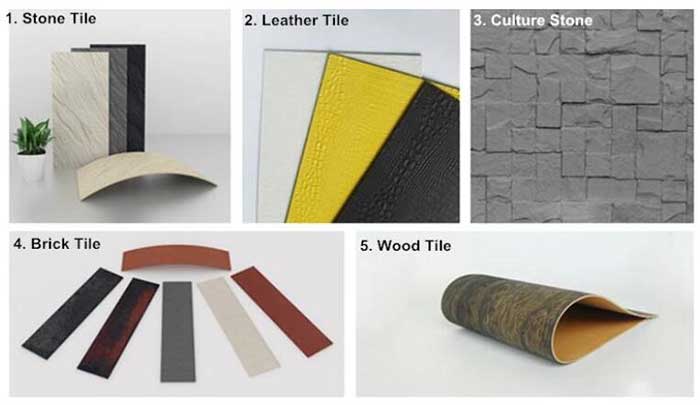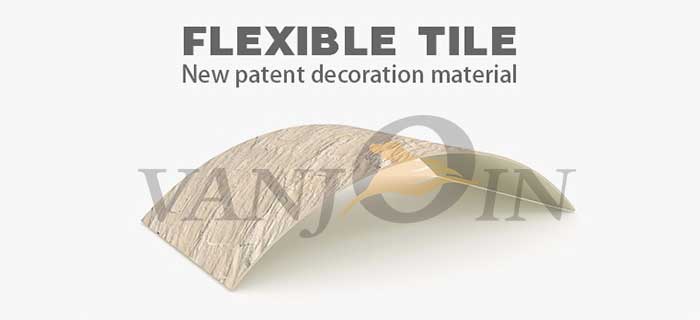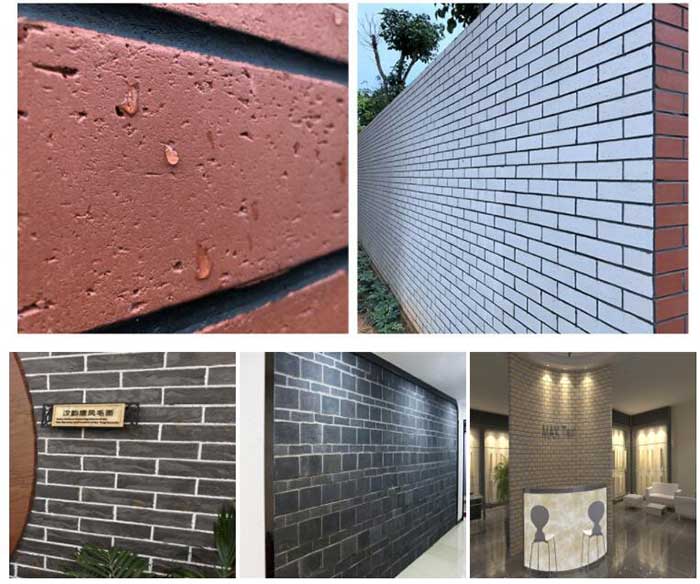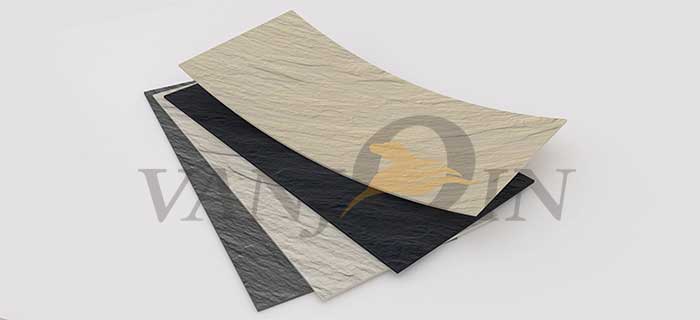Welcome to VANJOIN. Your satisfaction is our biggest pursuit.
Related articles:
1. What are the flexible tiles?
2. Advantages of flexible tiles
3. How to install flexible wall tiles?
4. How to clean and care for flexible tiles
Flexible tiles are not real porcelain, nor a ceramic tile. It is a new type of building decoration material. It adopts natural modified mineral powder as aggregates, green plant fiber and other natural polymers as reinforced materials, and is formed through light enzyme irradiation reaction. Since it was born, it has the appearance effect of ceramic tiles, so it is commonly called flexible tiles. Later, with the development of technology, it can be developed into imitation stone, imitation leather texture, imitation wood, etc., flexible tiles can be imaginable achieve.

The so-called "flexible tiles" is relative to traditional ceramics (hard porcelain, such as ceramic tiles). It is well known in the industry that traditional ceramics have been calcined at a high temperature of thousands of degrees, the whole body is vitrified and the texture is firm. Although the original material of flexible tiles is clay, it is not so simple to "fire" a process to turn ordinary clay into flexible tiles. General soil, including silt from rivers, lakes and seas, as well as urban construction discarded soil, removes impurities, is dried, destroyed, sieved, and obtains mud powder, while general mud powder is modified by surfactant compound modification under high-speed dynamic temperature. Sexual soil, namely Modifiedinorganic powder Composite Material (MCM). The main raw material is MCM, and it is a thin and light building and decoration surface material that is endowed with flexibility and formed by molds under photochemical isomerization and curve temperature.

It can be seen that although flexible tiles has "porcelain" in its name and is also fired from clay, it is a new type of decoration material that is completely different from ceramics. It is soft, thin and light, and complementary to ceramic tiles.

flexible tiles is different from ceramic tiles, but it is by no means a product that is "hard and soft" against ceramic tiles. In fact, the characteristics of its products make up for the shortcomings of ceramic tiles in some respects, which can be described as complementary products of ceramic tiles. For example, in terms of exterior wall decoration, because many countries have strict requirements on the materials and construction of high-rise exterior walls, because traditional ceramic tiles are heavier and have poor resistance to freezing and thawing, they are not allowed to be on the wall. At this time, flexible tiles plays its role.
Flexible tiles is the intuitive image of flexible tiles. The inspection revealed that the MCM soft porcelain exterior wall environmental protection decoration materials were rounded around a round rod with a diameter of 200mm without cracks. I picked up the MCM soft porcelain product and found no creases or cracks after bending it halfway. Its flexibility can also be adjusted according to actual needs, "as soft as you want", this gives flexible tiles a more expressive advantage in application. The ability to make flexible tiles into a huge arch shows the flexibility and simulation of the product. Because of its flexible texture and good ductility, flexible tiles can effectively resist shock and crack.

While energy-saving and emission-reduction programs are being implemented around the world, many construction industries are also contributing their efforts to this. flexible tiles are a green and environmentally friendly building material that will be fully applied in the building materials market in the future.